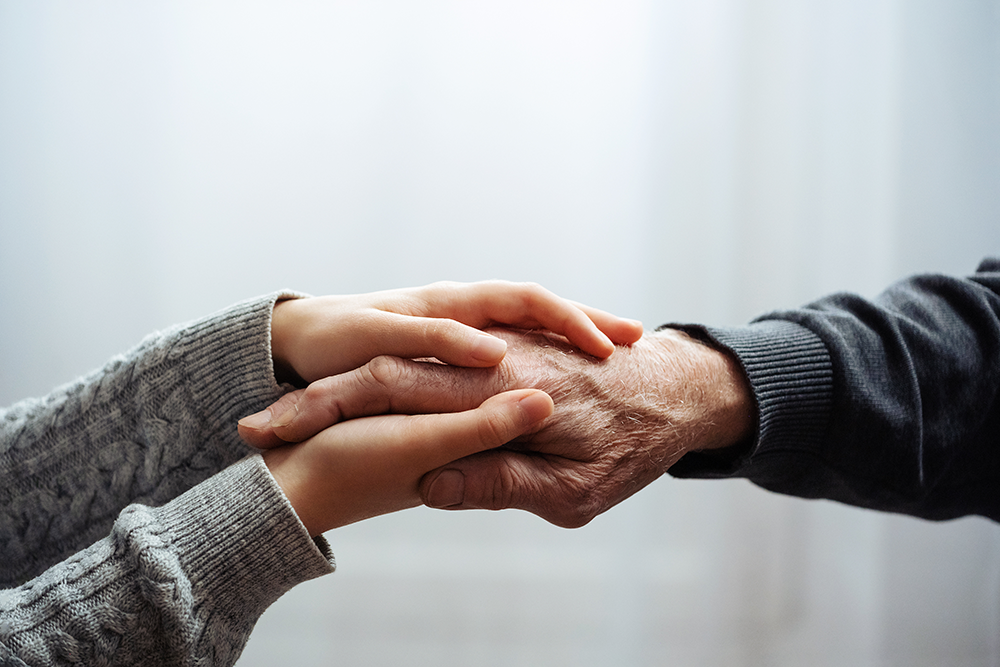National Death Doula Day holds so much excitement and anticipation for me this year. I look back on the past two years and, while it feels like a lifetime ago, I still remember every step of the journey to get to where we are today.
Working as an Elder Care Coordinator with Rothkoff Law Group, we acknowledge there have always been challenges within the healthcare system, but the pandemic intensified these challenges, particularly for our clients, the healthcare community, and me. Too many of our clients were dying alone. Their families were scared and turned to us for answers that we couldn’t provide. It became apparent that we, as a firm, were missing a crucial element in our support system beyond estate planning. We referred out to hospice companies, but that wasn’t enough. I felt pulled to do more and offer more, but I wasn’t sure how. This realization led me to discover the International End-of-Life Doula Association (INELDA).
Convinced of its potential, I looked into INELDA’s training and persuaded the managing attorneys to let me go through it. I was trained as an End-of-Life Doula (EOLD), or Death Doula, from October through November 2021. I realized this service might be our missing piece. During the training, I worked towards becoming comfortable with the idea of approaching death, my mortality, and others around me. It was much harder than I had initially anticipated, yet incredibly rewarding. This was truly a life-changing experience for me, and ironically, compounded by the fact that I was six months pregnant at the time. While a life was growing inside me, the training required me to contemplate how I would react to a terminal diagnosis for myself. The emotions that I experienced during this time are hard to put into words.
When I came back from maternity leave, I was motivated to integrate this service into our firm’s offerings. I wasn’t sure where to start, but this service was too important to ignore. We needed to talk about it, to offer it. It was a slow process, but we partnered with an EOLD in the area. I’m proud to say we are now offering Death Doula services to all of our clients.
I assumed that would be that, but I was so wrong. I quickly realized we faced an uphill battle. We were trying to normalize something that is ingrained in us, as Americans, to ignore or dismiss. We were trying to change the mindset of society. While I now love to talk about death and plan for it, empowering others to feel and do the same is not an easy task. So many are afraid of this topic, and as a result, it is not easy or comfortable to discuss.
More recently, we have pivoted to more of an educational role, presenting certified continuing education sessions, writing blogs, and engaging in various platforms to demystify the role of a Death Doula and promote open conversations about end-of-life, death, and dying. Bryan Adler (managing attorney in Pennsylvania), Kathleen Magee (Director of Care Coordination), and I have appeared on podcasts to discuss the role we as a firm can play in end-of-life care (Jewish Sacred Aging by Rabbi Address and Seeing Death Clearly by Jill McClennon). The keynote speaker at our annual symposium this past October was Loretta Downs, who founded Chrysalis End of Life Inspirations to create opportunities to talk about dying and death as a transformative part of life.
We are constantly looking for new and interesting ways to get the conversation flowing around end of life, death, and dying.
Having a healthier relationship with death has transformed my life. It has improved my relationships with friends, family, my husband, and my daughter. It has also allowed me to let go more. I’m no longer eager to hold a grudge. I forgive more but put up with less. It doesn’t mean I’m not afraid to die, but it means I accept it as a part of life, and it reminds me to be more present in the little moments.
We have made strides in the end-of-life services we can provide at Rothkoff Law Group, and we will continue to work towards our goals of normalizing conversations around end-of-life, death, and dying so that we can better assist our clients along their end-of-life journey.


